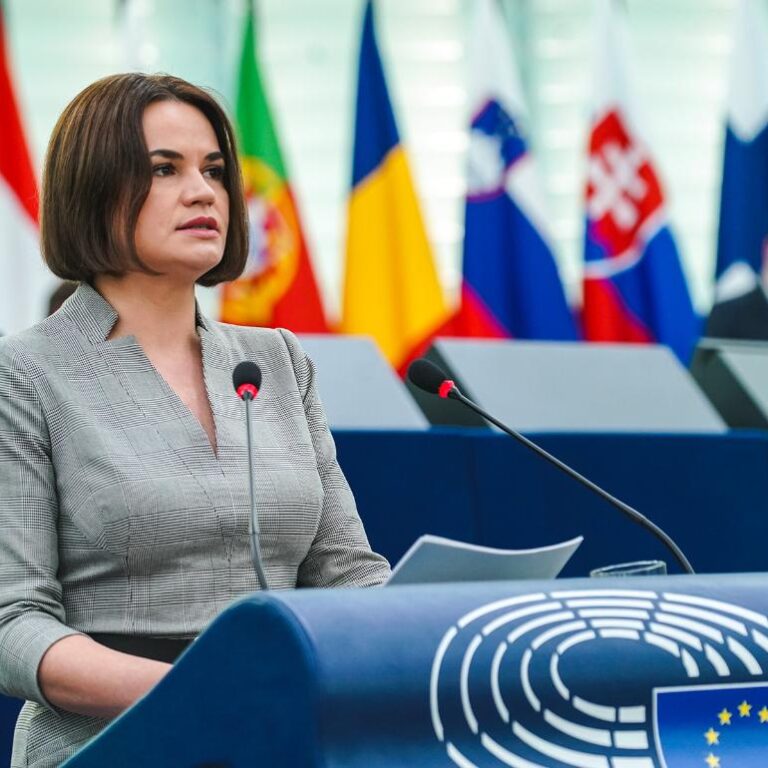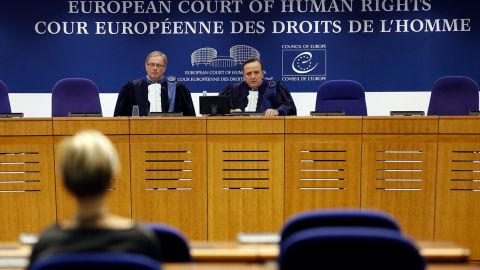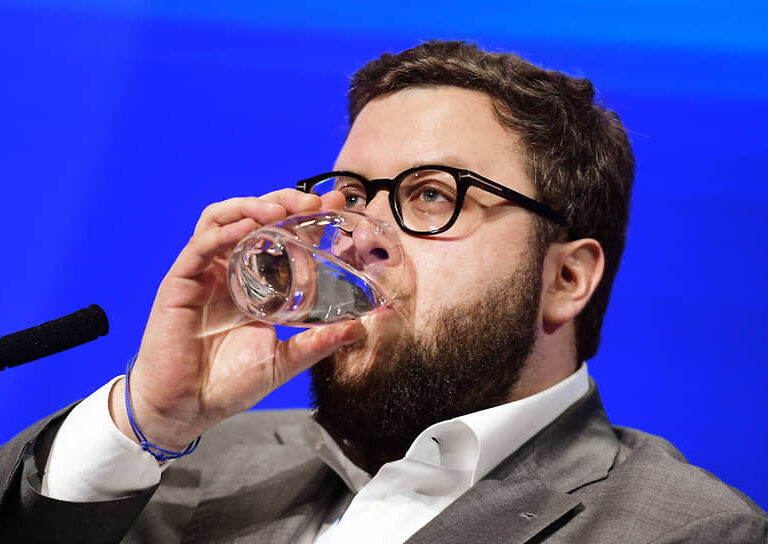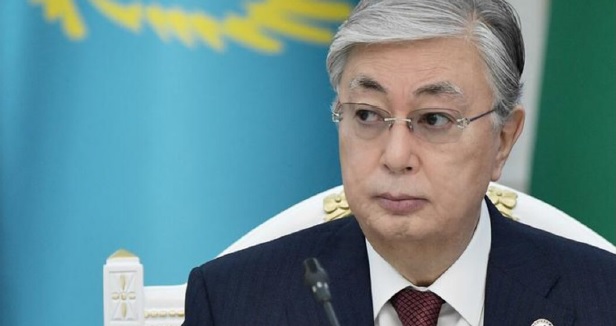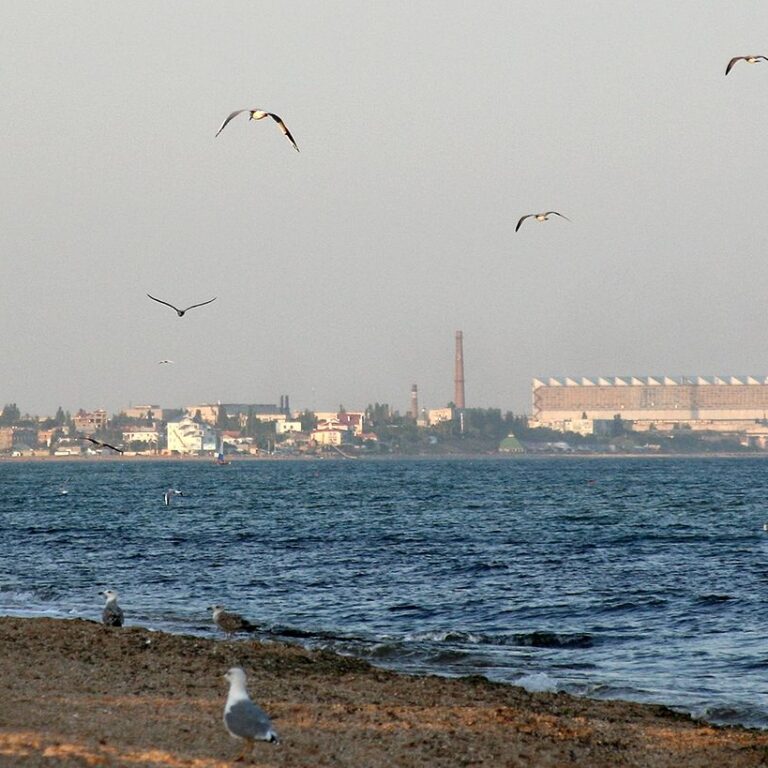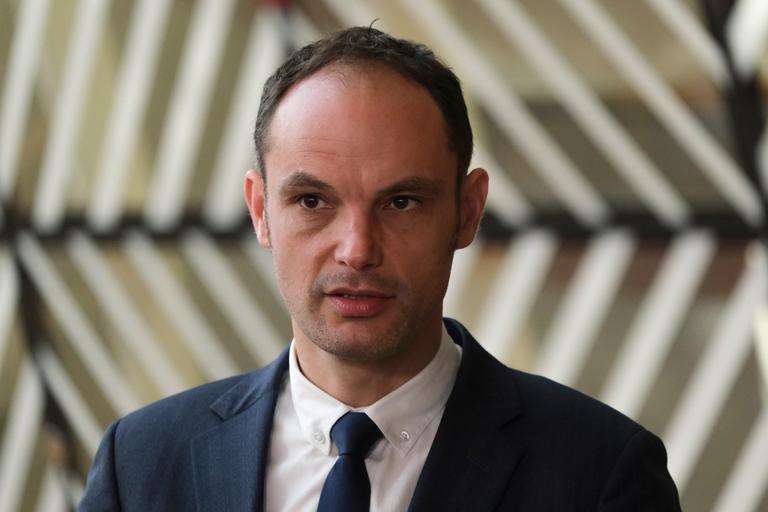Andrii Chvaliuk, expert of Association of Reintegration of Crimea, associate professor of the Dnepropetrovsk State University of Internal Affairs.
In 2016, the Office of the Prosecutor of the International Criminal Court published its assessment of the situation in the occupied territory of Crimea and Sevastopol, which it qualified as an international armed conflict between Ukraine and the Russian Federation that arose later than February 26, 2014 [1]. But modern warfare is not limited to battlefields. As M.P. Trebin point, the war is very close in essence to such a phenomenon as terrorism. This is also an act of violence aimed at forcing the enemy to fulfill someone else’s will [2]. Therefore, it is not surprising that an aggressor state that started a war but after Russia was rebuffed on all fronts it does not hesitate to criminally resort to terrorism.
Shortly after the terrorist attacks of September 11, 2001, the UN Security Council adopted Resolution 1373, which declared terrorism a threat to international peace and security and introduced a package of measures mandatory for states in the field of countering the terrorist threat. Also, this Resolution called on all states to take specific anti-terrorist steps, including the criminalization of terrorism as such, measures to strengthen and improve the border and migration regime and stop the financing of terrorism [3].
The UN Security Council resolutions call on other states to block assets: persons involved in the nuclear program of the DPRK and conducting nuclear experiments in it [4]; members of the Taliban and Al-Qaeda, whose activities in Afghanistan pose a threat to international peace and security [5]; members of ISIS, as well as individuals, groups, enterprises and organizations associated with it [6]; members of rebel groups in the Central African Republic who commit war crimes and crimes against humanity [7]; perpetrators of terrorist acts violate security and commit violence in the Republic of Yemen [8] and so on.
However, as you can see, the UN Security Council resolutions are impersonal. This instrument of international law defines concern only by global events, as well as by the states and organizations that cause these events. Without further action at the national level, UNSCR’s acts often remain as recommendations only. However, according to the UN Charter, its members, one of which is Ukraine, must comply with these resolutions if they have the force of decisions.
That is why the international list of terrorists has already included: leaders of groups of radical Islamists; businessmen financially supported by them; leaders of rebel movements who are trying to overthrow the legitimate government in their country by military means; heads of bank representative offices opened in countries sponsoring terrorism; heads of ministries and other government agencies involved in the implementation of the DPRK’s nuclear missile program; persons responsible for the purchase of nuclear materials for the DPRK and so on. However, some persons are still missing from this list, namely, citizens of Russia who have committed and continue to commit terrorist and war crimes on the territory of Ukraine.
On May 9, 2022, President of Ukraine Volodymyr Zelensky signed Law No. 2265-IX [9], which defines the Russian Federation as a terrorist state and lists the genocide of the Ukrainian people as one of Russia’s goals. The often documented facts of Russia’s violation of the International Convention for the Suppression of the Financing of Terrorism, 1999, that formed the basis of a lawsuit filed by Ukraine with the International Court of Justice even earlier [10].
However, as Aleksey Plotnikov, expert of the Association of Reintegration of Crimea, notes, there is neither a special status of a terrorist state or a terrorist regime in international law, nor a separate procedure for recognizing a certain state or regime as terrorist. The recognition of a state as a terrorist one occurs at the level of individual states and international organizations. For most states, this political and legal move has a symbolic meaning, but in the US and the EU it may have specific immediate negative consequences for the Russian regime and Russian elites [11].
There are already similar precedents. Recently, the District Court for the Southern District of New York ruled to confiscate in favor of the United States $ 5.4 million belonging to Russian sanctioned oligarch Konstantin Malofeev, who tried to evade sanctions. These funds were confiscated by the US Attorney’s Office and given the fact that the US Congress granted the Department of Justice new powers to transfer certain assets confiscated from Russian oligarchs, for the restoration of Ukraine, already on February 3 this year, it was indicated that the funds will be transferred to Ukraine [12].
But despite the adoption by the European Parliament of Resolution No. 2022/2896 (RSP) dated November 23, 2022, according to which Russia is recognized as a state sponsor of terrorism and a state using the means of terrorism [13], the list of states (jurisdictions) that do not implement or improperly implement the recommendations of international, intergovernmental organizations involved in the field of combating the legalization (laundering) of proceeds from crime, or the financing of terrorism or the financing of the proliferation of weapons of mass destruction, posted on the website of the State Financial Monitoring Service of Ukraine (hereinafter – SFMS), contains only three states: People’s Democratic Republic, Islamic Republic of Iran, Republic of the Union of Myanmar [14].
There is also a list of terrorists (hereinafter referred to as the List) on the website of the SFMS, the financial relations between which must be monitored and blocked by the subjects of primary financial monitoring in accordance with the Law of Ukraine “On Preventing and Combating the Legalization (Laundering) of Proceeds from Crime Financing of Terrorism and Financing Proliferation Weapons of Mass Destruction” [15].
This List includes only a few citizens of the Russian Federation who got there for carrying out their illegal activities related to the financing of terrorism or the proliferation of weapons of mass destruction within the internationally recognized borders of Russia itself. These individuals, mostly residents of Chechnya and Dagestan, are wanted by the Russian authorities themselves for “terrorist crimes committed on the territory of Russia”. The notes detail that they are all members of ISIS or Al-Qaeda and are listed under the UNSC Resolution.
By the way, all 958 people and organizations included in the Ukrainian list of terrorists were added there on the basis of UN Security Council resolutions. These are the well-known resolutions 1267 1999, 1989 2011, 2253 2015 and some others, which call on all states to take measures against members of ISIS and Al-Qaeda, as well as persons associated with them [16].
Thus, the entire list presented on the website of the SFMS consists of terrorists of the international level, who are already wanted by the whole world. This leads to certain reflections on the work of the Ministry of Foreign Affairs of Ukraine in filling the domestic list of terrorists. After all, according to Law No. 361-IX, it is the Ministry of Foreign Affairs that is entrusted with the duty to collect information generated by international organizations or bodies authorized by them about individuals, legal entities and organizations associated with terrorist organizations or terrorists, as well as about persons against whom international sanctions.
A quite logical question arises on strengthening the role of Ukraine in the fight against the financing of terrorism and assessing both the actions and inaction of Russia in the financing of terrorism.
Regarding Russia’s inaction, it can be pointed out that if a state does not join the world movement in the fight against the financing of terrorism and the proliferation of weapons of mass destruction, or its contribution is purely formal, this may be proof that the leaders of this state or the forces that stand behind them, are not interested in achieving the ultimate goal of this movement and directly or covertly support the spread of terrorism, including financially.
And if such a state is internationally recognized as a state sponsor of terrorism, persons holding top leadership positions in its defense, military-industrial, research and banking sectors are automatically subject to UN Security Council resolutions and fall into the black list of persons whose financial assets may be frozen.
Why has Russia not yet been recognized by the UN Security Council as a state sponsor of terrorism? The first reason is political. Russia still illegally occupies the seat of a permanent member of the UN Security Council and can veto the decision of the Security Council and the adoption of resolutions.
The second is purely economic. Until February 24, 2022, the Russian Federation was tightly integrated into the world economy and, despite several packages of general and personal international sanctions imposed on it after the start of the occupation of Crimea and certain territories of the Donetsk and Luhansk regions, continued to use the already established trade and economic ties and tried to make new ones.
After the start of the occupation of Crimea, more and more civilized states of the world began to refuse Russian goods and services, reduce quotas for the purchase of Russian gas, oil and coal, curtail enterprises and trade missions located on the territory of the aggressor state, and not supply their own goods and services to it.
And although the process of turning Russia into a pariah state has already entered an active phase in the political arena, economic processes are subject to their own laws – supply and demand. The fact that the European economy has not yet moved to a complete rejection of Russian goods makes it difficult, in our opinion, to recognize as terrorists all persons without exception doing business with Russian residents.
But some steps can and should be taken now. In particular, it is necessary to start blocking financial transactions of persons (organizations) maintaining business relations with Russian residents, to which international sanctions have been applied. Which brings us back to the need to include these individuals in the list of terrorists.
All legislative possibilities for this have long been created by Law No. 361-IX, and the only problem is seen in strengthening the interaction of the Ministry of Foreign Affairs of Ukraine with the relevant proposals to international organizations.
While the situation requires more active actions, in particular, the inclusion in the list of terrorists of such persons as Igor Bezler, a Russian saboteur, a “field commander” of an Russia-controlled illegal armed formation in Donetzk Region of Ukraine. Igor Bezler is suspected of committing a number of serious crimes on the territory of Ukraine: brutal murder of people, torture, seizure of state power, terrorism. The court granted permission for his detention.
Activists have established that Igor Bezler is now hiding in the occupied Crimea. At the beginning of 2023, he was seen near Perevalne village, where the main “training base” of the aggressor’s troops in the Crimea is located. There are objective reasons to assume that this experienced saboteur is involved in the training of sabotage and reconnaissance groups [17], which will then act criminally on the territory of mainland Ukraine. Recently, Igor Bezler recorded a video in which he confessed that he had handed over money taken from Ukrainian state bank collectors to Girkin (Igor Strelkov). Bezler, in his words, “is unknown” for what needs they were spent [18].
The European Court of Human Rights published on January 25, 2023 the decision on the occupation of the regions of Eastern Ukraine by Russia since 2014 in cases 8019/16, 43804/14 and 28525/20. Also, in the decision in the case “Ukraine v. Russia (on Crimea)”, the court clearly established the criminal role of Girkin in these events, since it was established that in February 2014 Girkin illegally entered Ukraine on the instructions of the Russian state to conduct a criminal operation in the Crimea [ 19].
Thus, there is a direct connection with the accused in the case of the downing of flight MH17 and the internationally wanted terrorist Igor Girkin and the terrorist Igor Bezler, who most likely was one of the sponsors of Girkin’s terrorist activities.
However, we do not know about the search for Igor Bezler as a terrorist; no one included him in the domestic list of terrorists either. And all because individual bodies, although they maintain contacts with special services and law enforcement agencies of other countries, as well as specialized structures within international organizations, “in many areas of their work they are entrusted with the support of partner special services and law enforcement agencies” [20].
We add that on February 6, 2023, the Verkhovna Rada adopted a resolution recognizing the Russian private military company “Wagner” as an international criminal organization. The Ukrainian competent authorities have received irrefutable evidence testifying to the criminal nature of the activities of the private military company “Wagner”, the document says.
The Parliament recommended that the Office of the Prosecutor General, the Security Service of Ukraine (SSU), the Ministry of Internal Affairs of Ukraine intensify the pre-trial investigation of criminal offenses against persons, in particular “Wagner” members, suspected of committing them on the territory of Ukraine, with the aim of its high-quality and prompt implementation and transfer of relevant materials in the manner prescribed by law to the court [21 , 22], and this poses corresponding tasks on the issue of international cooperation and lists of relevant terrorist organizations and their members.
Prevention of terrorist financing is one of such areas, and the real opportunities for international cooperation in this direction by the SSU are limited by law. The Office of the Prosecutor General of Ukraine has wide powers and real experience of international cooperation in the field of criminal prosecution of terrorists. It is he who should be given a key role in the search for terrorists, depriving them of their livelihood and financial opportunity to carry out their criminal activities in the future.
Based on the information collected by the Office, the list of terrorists should be updated.
Another entity that can contribute is the Ministry of Justice of Ukraine. On the basis of the powers granted to it, the Ministry of Justice must ensure the implementation of decisions made by Ukrainian courts on terrorists guilty of committing terrorist acts on the territory of our state and hiding in other states. The recognition by the court of a person guilty of committing a terrorist crime, in our opinion, is sufficient grounds for freezing the assets of this person, as well as other persons who had financial relations with him.
In the meantime, it seems that there are no terrorists in Ukraine. Indeed, in the list [23] compiled by the SFMS, only one terrorist organization, “Khatiba al-Tawhid Wal-Jihad” (formerly known as “Jannat Oshiqlari”), and operating under the auspices of the international terrorist organization “Al-Nusrah Front for the People of the Levant”, is declared as a leading activity, except other countries, also in Ukraine.
We did not find in the list individuals from among the Russian invaders and citizens of Ukraine who went over to the side of the enemy. Therefore, all authorized structures have a lot of fruitful work ahead of them.
Sources:
- https://www.icc-cpi.int/news/report-preliminary-examination-activities-2016
- Требін М.П. Війна і тероризм: симбіотичні відносини. Вісник Маріупольського державного університету. Серія: Історія. Політологія. 2017. Вип. 18. С. 365-373.
- https://www.unodc.org/pdf/crime/terrorism/res_1373_russian.pdf
- https://www.un.org/securitycouncil/ru/s/res/1718-%282006%29
- https://documents-dds-ny.un.org/doc/UNDOC/GEN/N11/379/03/PDF/N1137903.pdf
- https://www.derechos.org/peace/syria/doc/unsyr116.html
- https://documents-dds-ny.un.org/doc/UNDOC/GEN/N13/594/45/PDF/N1359445.pdf
- https://documents-dds-ny.un.org/doc/UNDOC/GEN/N14/247/09/PDF/N1424709.pdf
- https://zakon.rada.gov.ua/laws/show/2265-20#Text
- https://www.icj-cij.org/public/files/case-related/166/166-20191108-JUD-01-00-EN.pdf
- https://arcrimea.org/uk/analytics_ua/2022/11/05/sevastopolska-morska-bavovna-ta-obvynuvachennya-derzhavy-terorysta-u-bik-zhertvy/
- https://www.youtube.com/watch?v=9aYPlpDVoik
- https://www.europarl.europa.eu/doceo/document/TA-9-2022-0405_EN.pdf
- https://fiu.gov.ua/assets/userfiles/200/Res%20677%20sanction%20countries%20list/UKR_List_21.11.2022.pdf
- https://zakon.rada.gov.ua/laws/show/361-20#n638
- https://www.derechos.org/peace/syria/doc/unsyr116.html
- https://arcrimea.org/en/analytics/2022/12/03/stolen-chornomornaftogaz-scams-against-backdrop-of-ruins/
- https://arcrimea.org/en/news/2023/01/30/public-exchange-of-pleasantries-from-aggressors-crimean-terrorists/
- https://arcrimea.org/en/analytics/2023/02/01/european-courts-decision-regarding-east-of-ukraine-victory-of-justice-over-aggression/
- https://ssu.gov.ua/mizhnarodna-diialnist
- https://lb.ua/society/2023/02/06/544941_rada_viznala_rosiysku_pvk_vagner.html
- https://t.me/ARCconstruction/6700
- https://fiu.gov.ua/assets/userfiles/Terror/BlackListFull.pdf


